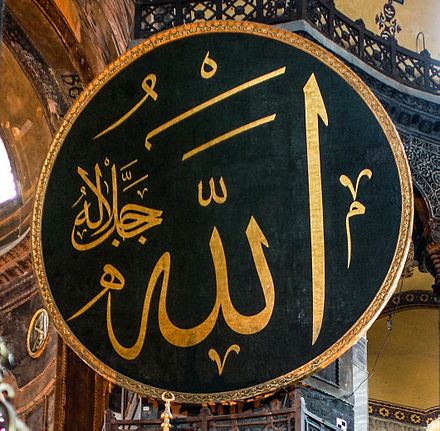Understanding the Foundation of Islamic Belief
The Articles of Faith (Arkan al-Iman) form the theological foundation of Islam. The Prophet Muhammad (PBUH) explained these core beliefs in the famous Hadith of Jibreel (AS), where he outlined the essential elements of faith that every Muslim must embrace. These beliefs provide a comprehensive framework for understanding our relationship with Allah, our purpose in life, and our ultimate destiny.
First Article: Belief in Allah (Tawheed)
At the heart of Islamic theology lies the belief in One God – Allah, the Creator and Sustainer of all existence. This belief, known as Tawheed, represents the most fundamental principle in Islam.
The Quran beautifully describes Allah’s nature: “Say: He is Allah, the One; Allah, the Eternal, Absolute; He begets not, nor is He begotten; And there is none comparable to Him” (112:1-4).
Understanding Allah’s attributes helps us develop a deeper connection with our Creator. These attributes include:
The Creator (Al-Khaliq): Allah is the originator of everything in existence
The All-Knowing (Al-Alim): His knowledge encompasses all things, past, present, and future
The Most Merciful (Ar-Rahman): His mercy extends to all creation
The Just (Al-Adl): He is perfectly just in all affairs
This belief shapes how Muslims view their purpose, responsibilities, and relationship with creation. When we understand that Allah sees and knows everything, it naturally influences our behavior and decision-making.
Second Article: Belief in Angels (Malaika)
Angels serve as Allah’s creation made from light, carrying out specific divine functions.
The Quran tells us: “They do not disobey Allah in what He commands them but do what they are commanded” (66:6).
Notable angels include:
Gabriel (Jibril) AS : Responsible for delivering divine revelation to prophets
Michael (Mikail) AS : Oversees natural phenomena
Israfil AS: Will blow the trumpet on the Day of Judgment
The Recording Angels (Kiraman Katibin) AS : Document our deeds
Understanding the role of angels helps us appreciate the organized system Allah has created for managing the universe. Their existence reminds us that we’re part of a larger spiritual reality beyond our physical world.
Third Article: Belief in Divine Books (Kutub)
Allah has sent guidance to humanity through various sacred texts. While Muslims believe the Quran is the final, unchanged revelation, we also acknowledge previous divine books:
The Torah (Tawrat) given to Moses
The Psalms (Zabur) given to David
The Gospel (Injeel) given to Jesus
The Scrolls (Suhuf) of Abraham
The Quran states: “We have sent down to you the Book in truth, confirming what came before it of the Scripture and as a criterion over it” (5:48).
This teaches us about the progressive nature of divine guidance and the culmination of revelation in the Quran.
Fourth Article: Belief in the Prophets (Rusul)
Allah sent prophets throughout history to guide humanity. The Quran mentions twenty-five prophets by name, though there were many more. Every prophet carried the same essential message of monotheism and moral conduct.
Key aspects of this belief include:
- All prophets were human beings chosen by Allah
- They demonstrated exemplary character
- Their messages were consistent in core beliefs
- Muhammad (PBUH) was the final prophet
The Quran teaches: “We made no distinction between any of His messengers” (2:285), emphasizing respect for all prophets.
Fifth Article: Belief in the Day of Judgment (Yawm al-Qiyamah)
This belief encompasses the end of this world and the beginning of eternal life. It includes:
The Day of Resurrection
The Final Accounting
Paradise and Hell
Divine Justice and Mercy
The Prophet (PBUH) said: “The first matter that the slave will be brought to account for on the Day of Judgment is the prayer” (Sunan al-Nasa’i 465).
This belief motivates believers to live righteously and reminds us of our ultimate accountability.
Sixth Article: Belief in Divine Decree (Qadar)
This complex concept involves understanding that while Allah knows and has power over all things, humans have free will and responsibility for their choices. The belief includes:
Allah’s complete knowledge of past, present, and future
Human free will and responsibility
The wisdom behind Allah’s decisions
The test of life and our response to it
The Prophet (PBUH) taught: “Know that what has passed you by was not going to befall you, and what has befallen you was not going to pass you by” (Tirmidhi 2516).
The Impact of These Beliefs
The Articles of Faith create a comprehensive worldview that:
- Provides purpose and meaning to life
- Establishes moral and ethical frameworks
- Offers comfort during difficulties
- Motivates righteous conduct
- Builds resilience and hope
Practical Application in Modern Life
These beliefs help Muslims navigate contemporary challenges by:
- Providing ethical guidelines for new situations
- Offering perspective during hardship
- Encouraging responsible stewardship of Earth
- Promoting social justice and moral behavior
- Building community through shared values
Conclusion
The Six Articles of Faith provide a comprehensive theological framework that shapes Muslim understanding of existence, purpose, and destiny. These beliefs are not merely theoretical – they profoundly influence daily life, decision-making, and character development.






